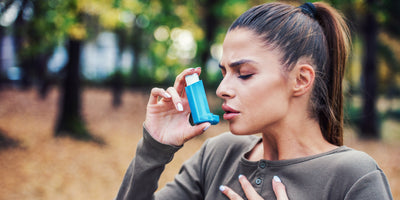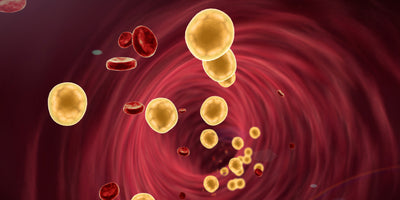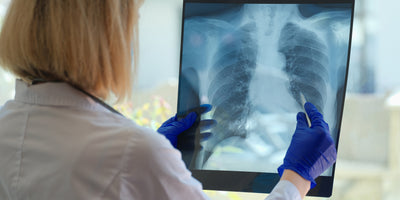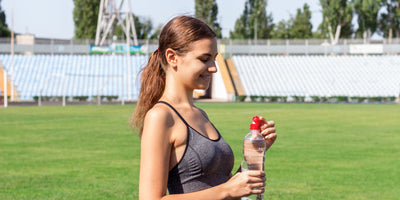
How Staying Hydrated Can Help with Hangover Relief
Introduction to Hydration and Hangover Relief
Dehydration is a key antagonist in the story of hangovers. Alcohol's diuretic effect leads to a significant loss of fluids and electrolytes, which are vital for normal bodily functions. Symptoms like headache, nausea, and dizziness are your body's way of sounding the alarm. However, by maintaining optimal hydration, you can dampen the severity of these symptoms or possibly sidestep them altogether. This piece sheds light on hydration's pivotal role in mitigating hangover symptoms and outlines actionable strategies to keep the dreaded hangover at bay.
The essence of hydration in combating hangovers cannot be overstated. While alcohol rushes through your system, causing dehydration and mineral imbalances, water acts as a natural counterbalance. It helps rehydrate your cells, flush out toxins, and restore essential nutrients lost during a night of indulgence. Understanding this dynamic is the first step toward leveraging hydration as a powerful tool for hangover relief.
Understanding the Science Behind Hangovers
At its core, a hangover is your body's reaction to overindulgence in alcohol, leading to dehydration, nutrient depletion, and an inflammatory response. Alcohol increases urine production, depletes the body of vital fluids and salts, and disrupts your immune system, contributing to the classic hangover symptoms. These biological disruptions explain why you feel so poorly after a night out and underscore the importance of hydration for recovery.
Moreover, alcohol metabolism produces acetaldehyde, a toxic compound that exacerbates hangover symptoms. By staying hydrated, you support your liver in metabolising alcohol more efficiently, reducing the time acetaldehyde spends wreaking havoc in your system. Water and electrolytes play a crucial role in detoxification, helping to mitigate the severity of hangovers and accelerate the recovery process.
The Role of Electrolytes in Combating Hangovers

Electrolytes such as sodium, potassium, and magnesium are essential for fluid balance, nerve function, and muscle contraction. When you consume alcohol, the balance of these vital minerals is disrupted, contributing to hangover symptoms like headaches and muscle weakness. Replenishing your body's electrolytes is therefore critical for efficient hangover recovery, as it helps restore the natural equilibrium and supports essential bodily functions.
To effectively combat hangovers, consider incorporating electrolyte-rich beverages into your recovery plan. Options like coconut water, which is naturally high in potassium, or electrolyte-infused drinks can provide a quick boost to your body's mineral levels. However, it's crucial to select beverages that are low in added sugars and artificial ingredients, as these can exacerbate dehydration and impede recovery.
Hydration Tips Before, During, and After Drinking
Preemptive hydration is your best defense against the effects of alcohol. Ensuring that you're well-hydrated before you start drinking can significantly reduce the impact of alcohol's diuretic properties. Aim to drink plenty of water throughout the day before your night out, setting a solid foundation for your body to handle alcohol consumption.
During the festivities, try to alternate each alcoholic beverage with a glass of water. This strategy not only helps maintain your hydration levels but also slows down your alcohol consumption, giving your body more time to metabolise alcohol and reduce the buildup of toxins. Before heading to bed, consuming a significant amount of water or an electrolyte drink can provide your body with the hydration it needs to begin the recovery process while you sleep.
The Impact of Different Alcohols on Hydration and Hangovers
Not all alcoholic beverages affect the body equally. Darker drinks, such as whiskey, red wine, and brandy, contain congeners, chemical byproducts of fermentation, which can exacerbate hangover symptoms. These substances, in addition to the dehydrating effects of alcohol, can make hangovers more severe. Understanding the impact of different types of alcohol on your body can guide you in making better choices to minimise dehydration and hangover severity.
In contrast, clearer alcohols like vodka, gin, and white wine tend to contain fewer congeners, potentially leading to milder hangovers. However, the key to hangover prevention lies not just in the choice of drink but also in the volume consumed and the level of hydration maintained throughout the drinking session. Staying informed about the drinks you consume and their effects can empower you to enjoy social gatherings without the dreaded aftermath.
Natural Hydration Boosters for Hangover Relief
In the quest for hangover relief, nature offers a bounty of solutions. Fruits and vegetables high in water content, such as cucumbers, watermelons, and oranges, can serve as delicious and effective hydration boosters. These natural remedies not only replenish fluids but also provide essential vitamins and minerals lost during alcohol consumption, supporting a faster recovery.
Herbal teas, such as ginger or peppermint, can soothe the stomach and aid in rehydration, while coconut water offers a natural source of electrolytes with less sugar than many sports drinks. Integrating these natural hydration boosters into your recovery regimen can enhance your body's ability to bounce back from a hangover, providing a gentler alternative to commercial hydration solutions.
How Much Water Should You Drink for Hangover Prevention?
The amount of water needed to prevent a hangover varies from person to person, depending on factors such as body weight, the type and amount of alcohol consumed, and individual hydration needs. A general guideline is to drink a glass of water (approximately 8 ounces) for every alcoholic drink. This strategy helps counteract the diuretic effect of alcohol, maintaining hydration levels and reducing the risk of hangover symptoms.
Additionally, drinking a large glass of water before going to sleep can further mitigate the effects of dehydration. For those seeking a more tailored approach, consulting with a healthcare professional or utilising hydration calculators online can provide personalised recommendations based on individual needs and drinking habits.
The Connection Between Hydration and Alcohol Metabolism
Hydration plays a critical role in the metabolism of alcohol. Adequate water intake supports liver function, allowing it to process and eliminate alcohol more efficiently. This process is crucial for reducing the accumulation of toxic byproducts like acetaldehyde, which is partly responsible for hangover symptoms. By staying hydrated, you can assist your body in detoxifying more effectively, leading to a quicker and less painful recovery.
Moreover, proper hydration supports the kidneys in filtering and excreting waste products, further aiding in the removal of toxins from the body. Ensuring optimal water intake before, during, and after drinking can thus provide significant benefits in reducing the overall impact of alcohol on your system and accelerating the healing process.
Myths vs. Facts: Hydration and Hangover Cures
There are numerous myths surrounding hangover cures, but few are backed by scientific evidence. One common misconception is that caffeinated beverages can cure a hangover by providing a needed energy boost. However, caffeine is also a diuretic, which can further dehydrate the body and potentially worsen hangover symptoms. Sticking to water or electrolyte-rich drinks is a more effective strategy for combating dehydration and facilitating recovery.
Another myth is that "hair of the dog," or drinking more alcohol, can alleviate hangover symptoms. This approach merely postpones the inevitable and can lead to increased dehydration and alcohol dependency. The best cure for a hangover is time, hydration, and replenishing essential nutrients lost during drinking.
Summary
- Hydration is crucial for hangover relief: Dehydration significantly contributes to hangover symptoms, making hydration a critical factor in alleviating discomfort.
- Alcohol's diuretic effect: Alcohol increases urine production, leading to dehydration and the loss of essential electrolytes, exacerbating hangover symptoms.
- Role of electrolytes: Replenishing electrolytes, in addition to water, is essential for restoring the body’s balance and improving symptoms of dehydration.
- Preventive hydration tips: Drinking water before, during, and after alcohol consumption can help maintain hydration levels and reduce the severity of hangovers.
- Impact of different alcohols: Darker alcohols with higher congener content can lead to more severe hangovers compared to clearer alcohols.
- Natural hydration boosters: Fruits, vegetables, and other natural drinks like coconut water and herbal teas can aid in rehydration and recovery.
- Recommended water intake: Drinking a glass of water for every alcoholic beverage consumed and a large glass before bed can mitigate dehydration effects.
- Hydration aids alcohol metabolism: Adequate water intake supports the liver in metabolising alcohol more efficiently, reducing the accumulation of toxic byproducts.







